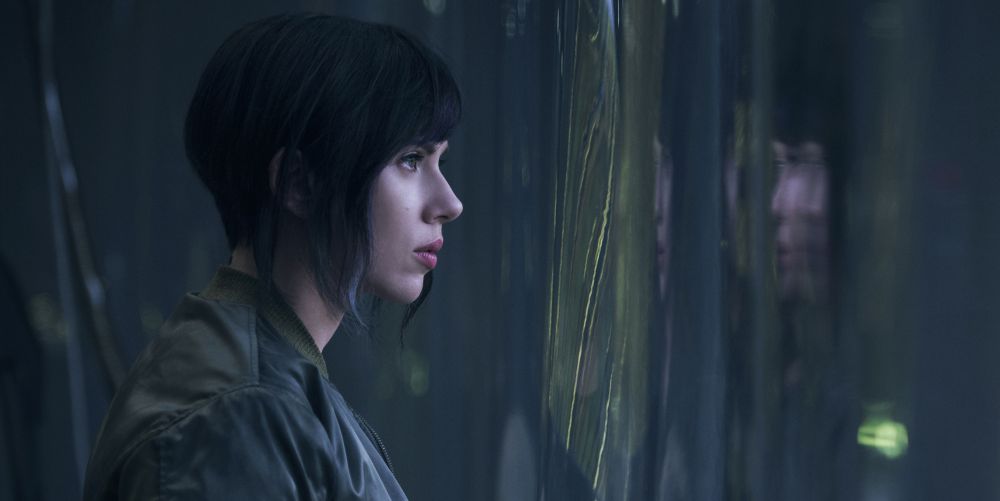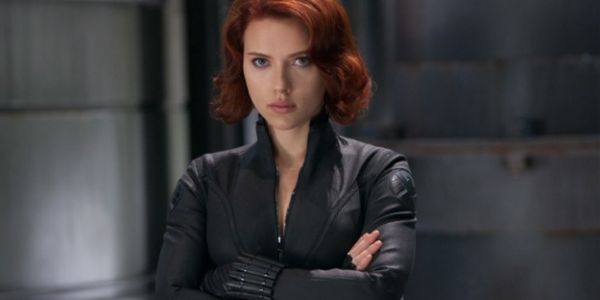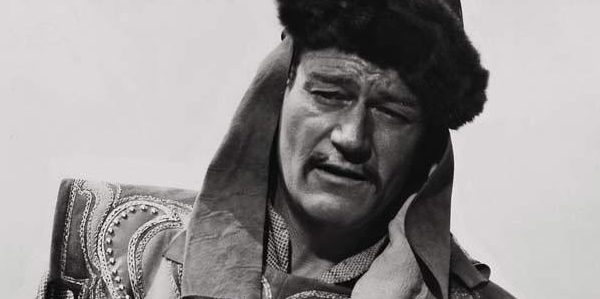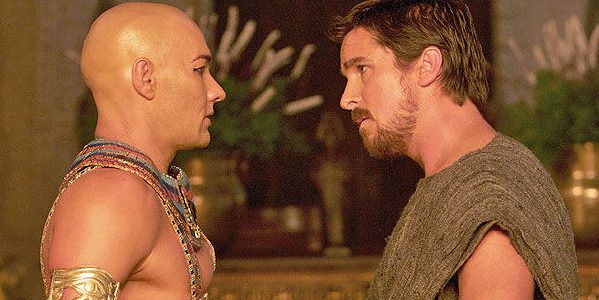Diversity In Hollywood And Why Fans Get It Wrong

American-born Actor, Writer and Filmmaker. 27 years of age. Movie-head.…
Has Scarlett Johansson ever hurt anyone? Really, has she?
Yes, maybe her character Natasha Romanoff in the Iron Man and Avengers movie series has broken a few people’s bones, maybe a fibula here and there. But Scarlett Johansson, herself? No.
Johansson is a sweet, half-Jewish, half-Danish woman from New York City who is not afraid of the spotlight when it comes to controversial issues such as race, politics, et cetera. She is one of the few at her level, that is willing to speak-up for what she believes is right most of the time.
So, when I first heard of the backlash she was receiving due to her most recent film Ghost in the Shell, all because of her playing Asian cyborg detective, Major Motoko Kusanagi, I understood fan’s initial uproar but was caught off-guard a bit.
The Problem
I think we all understand that there is a huge diversity problem in main-level Hollywood film. Not enough Black, Asian, Indian and Latino actors and actresses being offered roles of substantial value or only being offered stereotypical and at times, degrading roles that said actors don’t have much choice but to accept (if they hope to further their career, that is).

Either that, or there are roles for people of diverse backgrounds but they are given to (usually) white actors due to a bevy of reasons that we will get into very soon.
Yes Houston, we do have a problem. However, I believe there is a certain pecking order that audiences and actors alike must adhere to when passing out blame for this historic and gaping lack of diversity. Hint: Actors are at the bottom of this list.
The Rundown
I’ve witnessed blog sites and niche twitter accounts rip Scarlett Johansson apart for her latest role as Asian Detective, Motoko Kusanagi, but she is not the first to be in this same predicament. Hollywood has a knack for placing pale bodies in not-so-pale characters.
Just think; in 1956, John Wayne (then, a notorious Cowboy and Hollywood box-office gold) was cast as Genghis Khan in the CinemaScope epic The Conqueror. In this film, Genghis Khan is a Mongolian Warlord and John Wayne, simply, is not.
With gobs of yellow face-paint and no Mongolian accent in sight, Wayne and director Dick Powell, set out to make their cinematic masterpiece.
The crew even went so far as to shave John Wayne‘s eyebrows and re-apply fake ones to his bald forehead, as well as putting spirit gum and rubber bands on his head so that his eyes would slant upward to resemble a man of Asian descent. As if that wasn’t bad enough, he was also asked to grow a ‘Fu-Man-Chu’ mustache to finish off the oh-so elegant (and not-at-all offensive) look.
So, with a budget of over $6 million (equivalent to about $52 million today) and soon-to-be Academy Award winner Susan Hayward as their female lead, they crossed their fingers and hoped for the best.
This film, inevitably, turned out be one of John Wayne’s very worst and even 60 years later, is a testament to Hollywood’s desperate need for inclusion and diversity.
The Blame-Game
That being said, is John Wayne to blame for lobbying for and, ultimately, picking a role that he felt could benefit his career the most? Is director Dick Powell to blame for OK’ing the very questionable casting?
Perhaps, even Scarlett Johansson’s agent, Scott Lambert, is to blame for doing his best to put quality material in front of his client. I’m not 100% sure, but to me it is very hard to blame the talent in these scenarios.

It’s bothersome to me when I see hard-working actors and actresses being ridiculed for simply accepting a role or taking on a controversial project. Johansson has only recently gained her real ‘A-List’ stardom and, in my opinion, is only two or three films removed from being consistently confused with Blake Lively.
It’s very difficult for me, knowing the entertainment industry and knowing what we look for in a cast, to condemn an actor for acting and simply marking out a unique path for themselves and their career. If you know how hard it is to actually get consistent work that you as an actor can care about and connect with, I don’t believe you would attack someone in Scarlett Johansson’s position.
Instead, I believe audiences and actors alike should shift their focus a bit higher up in their warranted attempts to play the blame game. In my opinion, it is not the talent who is to blame for the white-washing of several Asian and Middle Eastern roles in Hollywood, but the front office. Starting with the producer, the director, and the casting director.
It is also a repercussion of the much bigger problem in America’s historic culture, which is the misguided and false concept that fairer skin is somehow of higher value than that of an Asian, or a Latino person. This, I believe, at times is not even a conscious act, but a routine that has been blindly carried out for so long, that many no longer even question its validity.
Are Producers So Bad?
I don’t think the producers of Ghost in the Shell have a disdain for Asians specifically… I don’t believe that they picked this iconic Asian story by hand and were hell-bent on offending an entire community.
In my opinion, it is simply that the world of cinema (and perhaps the United States as a whole) has not yet progressed far enough that there are ethnic people in already secure positions of stardom and fame to obtain such roles.
Meaning that there have been no Asian or Egyptian actors to reach that level of stardom over the years, and thus, no viable options today to fill the very big shoes of an A-List actor in a Hollywood film.
There are no Egyptian Oscar nominees. There are no Egyptian actors on the covers of those magazines that we half-way read at the local market. Recently there have been more rising stars of ethnic and diverse backgrounds but not many have yet reached ‘A-List Actor’ status.
Television, however, has spearheaded the issue with quality productions from channels 1-100 with colorful, vibrant casts, and captivating stories that leave both the audience and the actor satisfied. Still, studios have a hard time believing that any of these actors can generate the initial and eventual, long lasting buzz that is needed for Hollywood box-office movies.
Not Once, Not Twice…
Major studios often feel their only choice is to swap out authenticity and realism at times for eye-popping effects and unbelievable explosions. Their opinions on actors are not much different.
Another example of this systemic racism in Hollywood was 2014’s biblical epic Exodus: Gods and Kings, directed by, legend and cine-master, Ridley Scott. In this film we see Christian Bale, (born in Haverford West, United Kingdom) playing Egyptian Prince ‘Moses’ and beside him, is Australian-born Joel Edgerton, playing his brother and friend (also, Egyptian) ‘Prince Ramses’. Need I say more?
After facing backlash for his casting, director Ridley Scott defended his film by saying “I can’t mount a film of this budget … and say that my lead actor is Mohammad so-and-so from such-and-such. I’m just not going to get it financed.”

Now, that may not be good enough for the protesters and the keyboard warriors of internet-land, but sadly, it is the truth. Scott was referring to his film only being green-lit by major studios if it had a large, eye-opening lead actor in its credits. To say Scott could’ve just as easily cast an actual Egyptian actor and have the same projected success is one thing, but to be correct about that statement, I believe, is another.
It would be a very good suggestion, however, if there were any Egyptian actors of merit in Hollywood. There are Egyptian actors in Hollywood, like Rami Malek. But none are bigger, with more notoriety than Christian Bale. None with a household name that is able to spark a general audience’s attention with just a mention.
Basically, there are no Egyptian Batmans. (Believe me, I’ve looked.)
So Who Do We Blame?? I’m So Ready!
The most important positions in a production team are usually three people: the producer, the director and the casting director. These are the people that make all the important decisions on a film and choose who and what is needed to make the film a ’success’.
Though, none of it matters if the studios do not believe in the team, story, cast and ultimately, the audience, enough to ‘green light’ the film. Mind you, your idea of success is probably very different from a studio’s idea of success.
Most studios would hate to admit this to the general public, but they are far less concerned with creating a compelling, unique story as they are with getting a return on their monetary investment. A lot of times, even going so far as to prefer monetary increase over winning prestigious awards such as an Oscar or Golden Globe!
Still, it is factually proven that general audiences would prefer to see a diverse cast of actors and actresses in a film, rather than a single group of people filling out the entire cast. So next time you bump into that studio head on the elevator, give him the good news!
Finally! The Blame!
All in all, I don’t believe we can blame actors who are only trying to work and further their careers in the ‘dog-eat-dog’ industry that is Hollywood filmmaking. They have worked for years at their craft and to turn down a role could be a huge hit to their potential stardom and inevitably, their livelihood.
Especially for aging actors and actresses whose time in the spotlight may be dwindling down, and they might feel they must capitalize while they still can. With that being said, I may have an idea of who we can blame. How about ourselves? How about the prejudice/racist society that we have allowed to grow and fester at our feet?
Oh, and also the studios. Blame the studios.
Who do you think is to blame for the diversity problems in Hollywood?
Does content like this matter to you?
Become a Member and support film journalism. Unlock access to all of Film Inquiry`s great articles. Join a community of like-minded readers who are passionate about cinema - get access to our private members Network, give back to independent filmmakers, and more.













